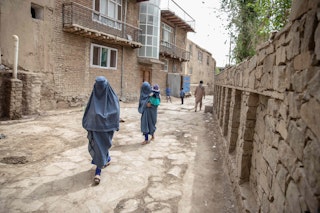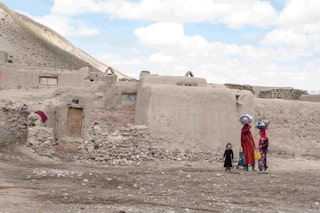“A cloak of silence settled over women like me, turning our homes into prisons”
Sanjeeda
“Before 15 August 2021, my life was quite different. I was a dedicated nurse working in various clinics and hospitals in Nimroz. I wasn’t just passionate about my job; it was my means of providing for my family of four, ensuring that their basic needs were met.
But the world turned upside down after 15 August, when the Taliban returned to power. I faced the harsh reality of job loss due to the absence of a male guardian, or mahram, as mandated by the Taliban. Being the eldest daughter in my family, I shouldered the responsibility of my three younger sisters. I had entered into a marriage at the age of 35, which ended in divorce. My husband expected me to adhere to strict customs, even demanding that I change my family name to his. When I refused, our marriage came to an end.
While I adhered to the dress code that was a symbol of my conformity, I stood firm in my determination to resist the oppressive restrictions. I refused to let my spirit waver. However, my life was to take another unwelcome turn when the Taliban introduced a new regulation: Female health care workers could practice only with a male guardian by their side.
With no one to fill this role, I was forced to make the heartbreaking decision to leave my beloved profession. The tight space of my home became my new reality, and the weight of responsibility weighed on my shoulders. I was now entrusted with the care of my three young children and my paralysed father.
I’ve managed to survive by selling furniture and other household items to buy food and I receive some help from relatives and neighbours. It isn’t much but it has been enough to keep us alive.
I urge the international community to support Afghan women, to prevent further physical and psychological suffering, and to give them hope in these dark times.”
